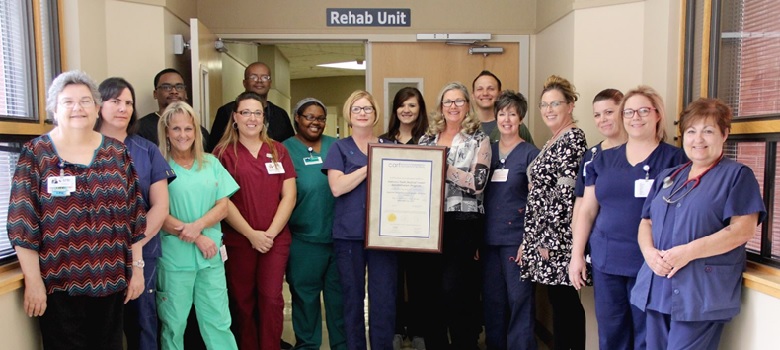Marijuana Addiction Collinsville OK
Home
Marijuana Addiction Collinsville OK Info
Marijuana Addiction Collinsville OK
Contact Best Drug Rehabilitation anytime, 24 hours a day, seven days a week at our toll-free number. One of our counselors or staff will be happy to talk with you and help you get started on a treatment plan right away. What starts out as a therapeutic method or a social activity typically progresses into a drug addiction.
The level of therapist and therapy allows the individual to take a close examination of their lives, to uncover and address any underlying issues that are involved in their personal and professional lifestyles and environments that ultimately contributed to their addiction. Rehabs differ by location, therapies offered, staff experience, amenities and more.
Right here are Some More Details on Cocaine Rehab Treatment Center

Here are Some Even more Information on Ms Contin Detox Programs Collinsville OK
Alcohol abuse is very common throughout this Texas city. It’s a long-term commitment that you must choose to fulfill every day.
Below are Some More Resources on Cocaine Rehab Treatment Center
1-800-819-9973 Deuteronomy 31:8 It is the Lord who goes before you. Drug Rehab Center Centers in Texas may or may not be ideal for the individual in question and if that is the case, we will help you find treatment for addictions in or outside of the state of Texas. Addiction to drugs or alcohol does not discriminate, it doesn’t care if you make $10,000 a year or you make hundreds of thousands a year. Drug Rehab Center centers helpline 1-800-819-9973 is part of an ongoing ministry to bring people out of the darkness in which they are now living and into the light of their future. Allow plenty of time, and try to avoid public places so the person does not feel attacked or humiliated. Drug Addiction Hotline offers to patients and their loved ones an initialassessment of a drug addiction problem, followed by enrollment in to a CertifiedDrug Rehab facility that specializes in the particular drug of use, as well asaddressing additional medical and mental health problems.A drug addiction hotline is a toll free phone line or website that is staffed 24 hours a day, 7 days a week, to help with any questions or problems an addict may encounter.
Right here are Some Even more Info on Ms Contin Detox Programs Collinsville OK
It was estimated that 266,000 individuals had alcohol abuse or addiction problem over a one year period. Meetings for Drug Addiction You or your loved one can access free local community support from 12 Step fellowships such as Narcotics Anonymous, Cocaine Anonymous and Alcoholic Anonymous. If you’re worried that a friend or loved one might be abusing drugs, look for the following warning signs: Physical warning signs of drug abuse or addiction Bloodshot eyes, pupils larger or smaller than usual Changes in appetite or sleep patterns Sudden weight loss or weight gain Deterioration of physical appearance, personal grooming habits Unusual smells on breath, body, or clothing Tremors, slurred speech, or impaired coordination Behavioral warning signs of drug abuse or addiction Drop in attendance and performance at work or school Unexplained financial problems; borrowing or stealing Engaging in secretive or suspicious behaviors Sudden change in friends, favorite hangouts, and hobbies Frequently getting into trouble (fights, accidents, illegal activities) Psychological warning signs of drug abuse or addiction Unexplained change in personality or attitude Sudden mood swings, irritability, or angry outbursts Periods of unusual hyperactivity, agitation, or giddiness Lack of motivation; appears lethargic or "spaced out" Appears fearful, anxious, or paranoid Warning signs of commonly abused drugs Marijuana: Glassy, red eyes; loud talking, inappropriate laughter followed by sleepiness; loss of interest, motivation; weight gain or loss. Serious illness (such as HIV, contracted through shared needles or risky sexual behavior). Forgiving yourself is a large part of addiction recovery. In a survey of treatment providers from three separate institutions (the National Association of Alcoholism and Drug Abuse Counselors, Rational Recovery Systems and the Society of Psychologists in Addictive Behaviors)[where?] measuring the treatment provider's responses on the Spiritual Belief Scale (a scale measuring belief in the four spiritual characteristics AA identified by Ernest Kurtz); the scores were found to explain 41% of the variance in the treatment provider's responses on the Addiction Belief Scale (a scale measuring adherence to the disease model or the free-will model addiction).[4] Scientific research since 1970 shows that effective treatment addresses the multiple needs of the patient rather than treating addiction alone.[citation needed] In addition, medically assisted drug detoxification or alcohol detoxification alone is ineffective as a treatment for addiction.[3] The National Institute on Drug Abuse (NIDA) recommends detoxification followed by both medication (where applicable) and behavioral therapy, followed by relapse prevention. They also have a separate line for people with hearing impediments: 1-800-487-4889 (TDD) 1-800-273-TALK (8255) – National Suicide Prevention Line Unlike the name implies, this hotline is more than just a suicide prevention helpline. Unlike some other subjects of addiction, moderate use of drugs is not encouraged.
Click Here for More Information
Previous Next
You may also like:
Opioids Addiction Treatment Facilities Cape Porpoise ME
Damason-p Rehab Treatment Clinics Owensboro KY
Tramal Addiction Rehab Centers Plymouth NH
Concerta Addiction Rehab Clinic Crystal Bay MN
Speed Detox Treatment Program Agate CO
Codeine Rehab Center Carnelian Bay CA
K2 Addiction Rehab Centers Wilson MI
Methamphetamine Detox Treatment Childersburg AL
Prescription Drug Addiction Treatment Oak Bluffs MA
Mushrooms Detox Facilities Lafitte LA
Tramal Addiction Clinic Hollywood FL
Endodan Rehab Near Me Hampton TN
Methadrine Rehab Treatment Programs Cottonwood MN
Methadone Detox Centers Montville CT
Avinza Addiction Rehab Centers Powellville MD
Hydrocodone Detox Treatment Programs Mililani HI
Opium Addiction Treatment Programs Udell IA
Di-gesic Addiction Detox Centers Emigsville PA
Vicodin Addiction Treatment Centers Creston OH
Tranquilizers Rehab Clinic Sumner IA